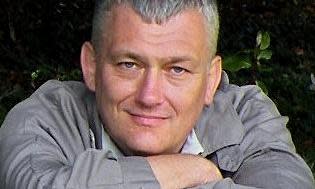Richard Warry obituary

My friend Richard Warry, who has died suddenly aged 59, was a BBC journalist who helped to build its online news service from its earliest days, in particular on its coverage of health matters.
An old-school print journalist with a background in the medical press, he was an unlikely character to be such a shaping influence in digital news. But once he joined the BBC’s online news team in 1998, he brought all of his traditional journalistic rigour to a new type of service that was then in its infancy.
The internet is now the dominant way of sharing news, but in those days it was still far from obvious or inevitable that it would become so. While there have been many charlatans holding forth on digital journalism, Richard was part of the generation of journalists who actually made it happen.
He remained working in digital news for many years, running the BBC’s online health coverage and then coordinating its online specialist journalism, always to the highest standards.
I started working with Richard at BBC Television Centre in 1998 as one of the early intakes of journalists working online. Richard was a larger than life figure from the outset, a complicated mix of passions, obsessions and contradictions.
He was born in Rustington, West Sussex, to Brian, a director of a refrigeration firm, and Patricia (nee Campbell), who worked in the print room of a drilling company. After attending Littlehampton school he studied biology and psychology at Leicester University, before completing a journalism course at City, University of London.
His first job in journalism was as a reporter on the Croydon Advertiser, and he then went into the medical press, working for Doctor and GP magazines before joining the BBC in 1998. Working on the health news team, he became online health news editor and then assistant editor for online specialist journalism. He was still at the BBC at his death.
Enormously popular with colleagues, Richard was trusted by all, and behind an often formidably gruff exterior there was the kindest of spirits, always ready to support anyone in need and unwilling to take any credit for himself. No one worked harder; he might have been termed a workaholic, but he was never as relaxed as that.
A sharp-witted puncturer of anything pretentious, Richard’s trademark wit – dry and often wryly pessimistic – was accompanied by an underlying sense of decency.
Outside work he loved the music of Bob Dylan, supported Wolves football club and Sussex county cricket club, and read voraciously.
He is survived by his partner, Oona Mashta, whom he met in the 1990s when they were both working for medical publications, and their children, Grace and William.

 Yahoo News
Yahoo News 